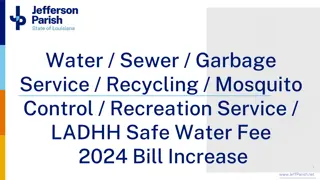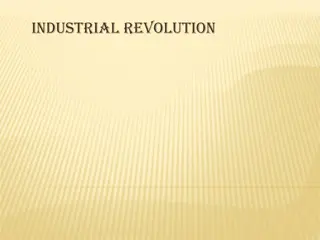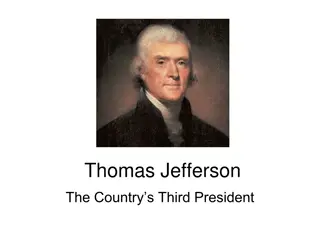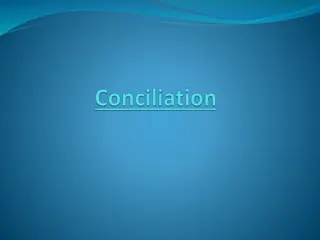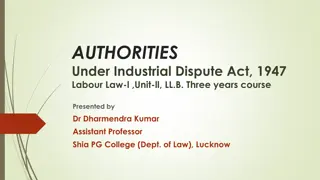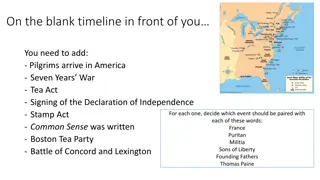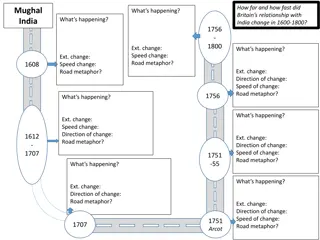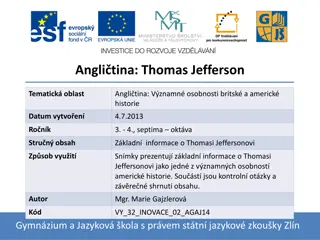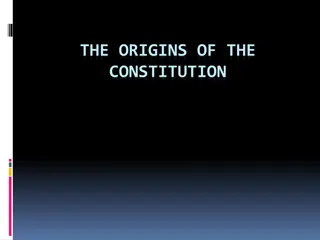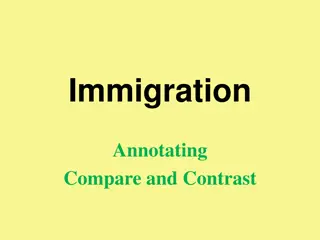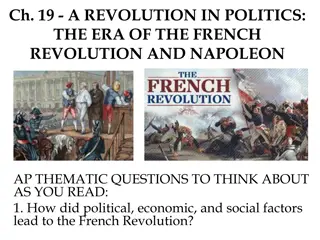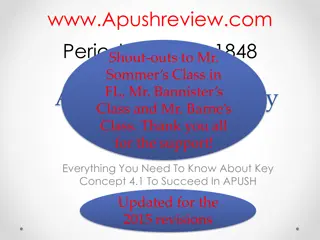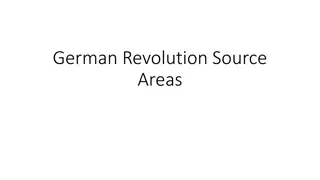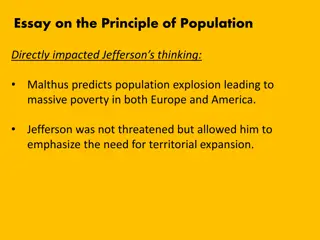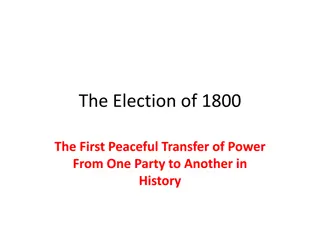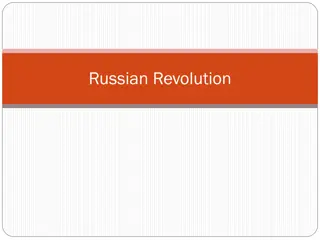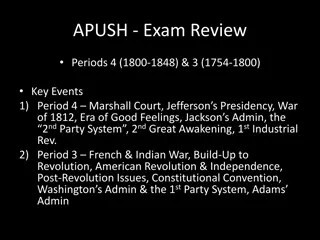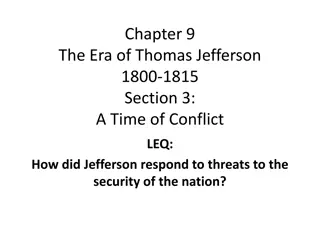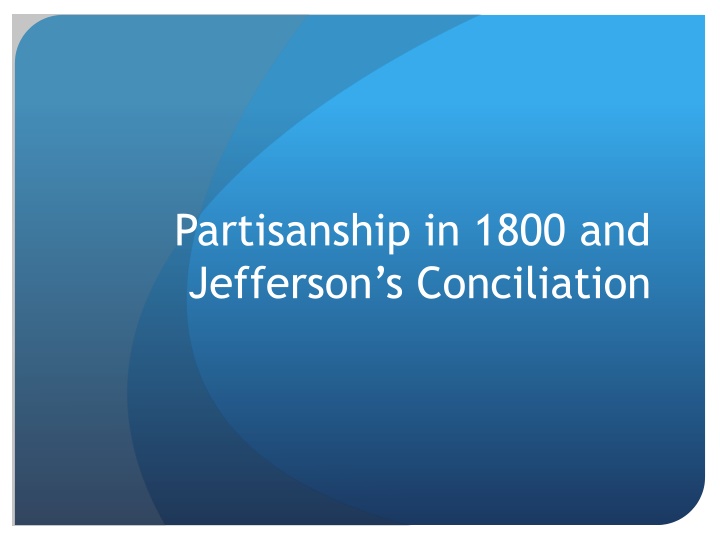
Jefferson's Conciliation and Revolution of 1800
The Election of 1800 marked a significant shift in American politics as Thomas Jefferson's Conciliatory Policy aimed to resolve partisan conflicts. Jefferson's early administration focused on priorities such as domestic policies and handling the aftermath of the Revolution of 1800, setting the course for his presidency. Despite some discrepancies between his ideals and actions, Jefferson's leadership shaped critical decisions during this transformative period.
Download Presentation

Please find below an Image/Link to download the presentation.
The content on the website is provided AS IS for your information and personal use only. It may not be sold, licensed, or shared on other websites without obtaining consent from the author. If you encounter any issues during the download, it is possible that the publisher has removed the file from their server.
You are allowed to download the files provided on this website for personal or commercial use, subject to the condition that they are used lawfully. All files are the property of their respective owners.
The content on the website is provided AS IS for your information and personal use only. It may not be sold, licensed, or shared on other websites without obtaining consent from the author.
E N D
Presentation Transcript
Partisanship in 1800 and Jefferson s Conciliation
The Election of 1800 Re-match of Election 1796 (Adams vs. Jefferson) Main issues: Relations with France and Alien/Sedition Acts This election is seen as the first modern campaign: 1) Organized political parties to get out the vote 2) Negative advertising 3) Extreme bitterness between parties/candidates Controversy: Since Constitution never envisioned political parties, it made no provision for a separate ballot for the President and Vice-President (the second place vote winner would become the VP). This caused a problem when Jefferson and his VP Burr ended up in a tie for President. The Federalists in the House of Representatives made it difficult to settle this election.
The Revolution of 1800 and a Lame Duck President The term revolution of 1800 refers to the this election represented the first time power transferred between political parties. How would the parties respond? What should an outgoing President do during the transition? The lame duck Congress passed the Judiciary Act of 1801. The lame duck Adams appointments judges in his last remaining days. These are sometimes called the midnight appointments/judges .
Jeffersons Response: Jefferson used his inaugural address, the speech given by the President at his swearing in ceremony, to announce his Conciliatory Policy. What is Conciliation? Using Jefferson s speech, how did plan to resolve partisan problems? Using Jefferson s speech, what were the goals of his administration?
Jeffersons early administration Using the worksheet, President Jefferson leads the Nation, what appears to be Jefferson s priorities as President?
Jeffersonian Domestic Policies Jefferson s actions did not always match his ideals. Cabinet: Chose only Republicans as his advisors. Financial: Cut spending and excise taxes, but kept tariffs. The Rule of Law: Allow Sedition Act expire and repealed Alien and Naturalization Acts. However, Marbury v. Madison case (1803) represented Jefferson s challenge to midnight judges. Marshall has a surprise!
Biggest Domestic Success: Louisiana Purchase (1803) A growing problem for Jefferson was what to do with the lands west of the Appalachian Mountains. 1,000s of Americans were streaming into territories through the Cumberland Gap. Troubles with Indians and French (who now control New Orleans.) Sent Robert Livingston and James Monroe to France to a treaty to ensure access to New Orleans. Napoleon offered to sell the land (all of it!!!!) Is this Constitutional? How might Jefferson respond?

